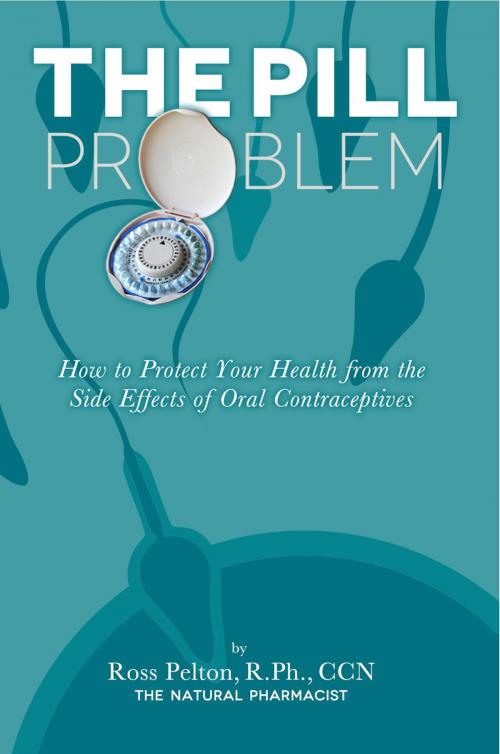The Pill Problem
How to Protect Your Health from the Side Effects of Oral Contraceptives
Nonfiction, Health & Well Being, Health, Women&| Author: | Ross Pelton | ISBN: | 9781624889752 |
| Publisher: | BookBaby | Publication: | January 1, 2013 |
| Imprint: | Language: | English |
| Author: | Ross Pelton |
| ISBN: | 9781624889752 |
| Publisher: | BookBaby |
| Publication: | January 1, 2013 |
| Imprint: | |
| Language: | English |
Oral contraceptives were first approved in the United States in 1960. It is estimated that over 80% of women born in the U.S. after 1945 have used oral contraceptives at some time in their lives. The “pill” ushered in a new ear of sexual freedom for women. For the first time women had the freedom to enjoy spontaneous sex without the fear of becoming pregnant. However, studies report that about 50% of women who begin using oral contraceptives discontinue use within the first six to 12 months due to side effects. Birth control pills are currently taken by over 12 million women in the United States and over 100 million women worldwide. Unfortunately, most women don’t realize that taking the “pill” substantially increases their risks to many health problems, some of which are potentially very serious. Oral contraceptives increase a woman’s risk of depression, sleep disorders, anemia, low energy, migraine headaches, vaginal yeast infections, heart attacks, strokes, blood clots, diabetes, a weakened immune system, giving birth to an infant with birth defects, and cancers in the uterus, colon and breast. The Pill Problem teaches women how to protect their health from the dangerous side effects of oral contraceptives. The author, who is a pharmacist and a certified clinical nutritionist, educates women about why oral contraceptives can cause so many health problems, and he presents some relatively easy and inexpensive steps that can be taken to minimize their risks. Every woman who is taking oral contraceptives or who may take them at some time in her life should read The Pill Problem. Many women don’t realize birth control pills deplete their bodies of many nutrients which can cause or contribute to the previously listed diseases. The author points out that many of the health problems caused by oral contraceptives develop gradually and do not initially cause noticeable symptoms. Hence, women are often not aware that a problem is developing, and when a health crisis like a heart attack or breast cancer does happen, they are not likely to realize that taking oral contraceptives for years was a contributing factor.
Oral contraceptives were first approved in the United States in 1960. It is estimated that over 80% of women born in the U.S. after 1945 have used oral contraceptives at some time in their lives. The “pill” ushered in a new ear of sexual freedom for women. For the first time women had the freedom to enjoy spontaneous sex without the fear of becoming pregnant. However, studies report that about 50% of women who begin using oral contraceptives discontinue use within the first six to 12 months due to side effects. Birth control pills are currently taken by over 12 million women in the United States and over 100 million women worldwide. Unfortunately, most women don’t realize that taking the “pill” substantially increases their risks to many health problems, some of which are potentially very serious. Oral contraceptives increase a woman’s risk of depression, sleep disorders, anemia, low energy, migraine headaches, vaginal yeast infections, heart attacks, strokes, blood clots, diabetes, a weakened immune system, giving birth to an infant with birth defects, and cancers in the uterus, colon and breast. The Pill Problem teaches women how to protect their health from the dangerous side effects of oral contraceptives. The author, who is a pharmacist and a certified clinical nutritionist, educates women about why oral contraceptives can cause so many health problems, and he presents some relatively easy and inexpensive steps that can be taken to minimize their risks. Every woman who is taking oral contraceptives or who may take them at some time in her life should read The Pill Problem. Many women don’t realize birth control pills deplete their bodies of many nutrients which can cause or contribute to the previously listed diseases. The author points out that many of the health problems caused by oral contraceptives develop gradually and do not initially cause noticeable symptoms. Hence, women are often not aware that a problem is developing, and when a health crisis like a heart attack or breast cancer does happen, they are not likely to realize that taking oral contraceptives for years was a contributing factor.















